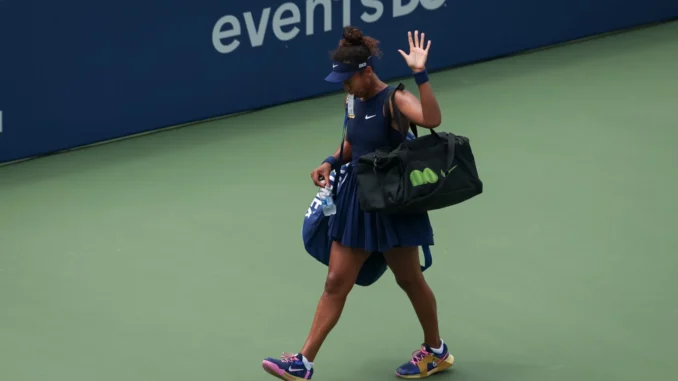
In a highly anticipated clash at the Mubadala Citi DC Open in Washington, D.C., Naomi Osaka faced off against Emma Raducanu on July 24, 2025, in a battle of former US Open champions that promised fireworks but ended in a decisive 6-4, 6-2 victory for the British star. The second-round match, their first-ever meeting on the WTA Tour, saw Raducanu dominate with precise serving and aggressive baseline play, leaving Osaka grappling with a shaky performance marked by seven double faults and a mere 43% win rate on second-serve points. Yet, in the aftermath of the defeat, Osaka expressed an unexpected sense of calm, admitting to reporters that she felt “a little confused” about her composed reaction compared to past losses. This introspective response, coupled with her reflections on her evolving mindset, paints a picture of a champion navigating the complexities of her comeback journey.
Osaka’s 2025 season has been a mix of resilience and frustration as she continues her return to elite tennis following maternity leave in 2024. The 27-year-old, a four-time Grand Slam winner, arrived in Washington buoyed by a strong first-round win over Yulia Putintseva, 6-2, 7-5, but struggled to find her rhythm against Raducanu. Her serve, once a formidable weapon with speeds reaching 127mph, faltered under the pressure of Raducanu’s relentless returns. Despite landing 88% of her first-serve points in the opener, Osaka’s first-serve percentage dipped to 46% against Raducanu, who capitalized on three of four break-point opportunities. “I feel like from the baseline, I was doing pretty well,” Osaka noted, acknowledging Raducanu’s edge in key moments. “I think there are certain situations where she got one more ball back and I was kind of just looking and waiting.”
The defeat marked another hurdle in Osaka’s quest to reclaim her place at the top. Her season has included a title at the WTA 125K event in Saint-Malo and a final at a WTA Tour event, but high-profile exits at the French Open and Wimbledon have tempered expectations. Reflecting on her loss to Raducanu, Osaka shared, “I think all losses suck a lot. But I don’t know. I’m also a little confused why I’m okay right now compared to other matches in the past.” She attributed this newfound perspective to a clearer plan for her career, built over the course of the year. “I think it’s because now I have a clear plan on what to do, but I also feel like that’s been a buildup of this year,” she said. “Maybe you’re right, like if I did have a match point and I lost, I would be, like, a completely different attitude right now. But I guess it depends on the tolerance of the player.”
Osaka’s candidness extended beyond her performance to her admiration for Raducanu, who she praised for navigating intense media scrutiny and personal challenges, including a stalking incident in Dubai earlier this year. “I really feel sad for her because that video was one of the most saddest videos I’ve ever seen,” Osaka said, expressing hope that Raducanu has a strong support system. She also reflected on their shared experiences as young Grand Slam winners thrust into the spotlight, noting, “I won my second slam after I won my first,” a subtle nod to her sustained success compared to Raducanu’s ongoing journey. Despite the loss, Osaka remained upbeat about the experience, saying, “I’ve been working on my return a lot, and, ironically, I don’t think it was that bad today. I think she served quite well, so I guess I’ll just keep working on that.”
Raducanu, meanwhile, entered the match with confidence, having dispatched seventh seed Marta Kostyuk in the first round. She acknowledged Osaka’s prowess, stating, “I thought it was going to be a really difficult match. Naomi’s won four slams, she’s been world number one, won Masters. She’s so dangerous, and on the hard courts, I think she’s particularly comfortable.” Raducanu’s game plan focused on managing her service games and capitalizing on Osaka’s second serve, a strategy that paid off as she saved both break points faced and broke Osaka three times. “I knew I was going to have to play really well and manage my own service games,” she said, adding, “If you float the second serve, then Naomi’s gonna crunch it.”
As Osaka heads to the National Bank Open in Montreal, her reflections suggest a player learning to balance ambition with patience. Her admission of feeling “a positive attitude to try to move forward” highlights a shift toward resilience, even as she continues to fine-tune her serve and baseline game. For Raducanu, the victory propelled her into the quarterfinals against Maria Sakkari, a player she has never lost to, and restored her status as British No. 1. The match, while not the close contest many anticipated, underscored the contrasting trajectories of two stars whose parallel paths—marked by Grand Slam glory and intense public scrutiny—finally converged in Washington, setting the stage for future battles.
Leave a Reply